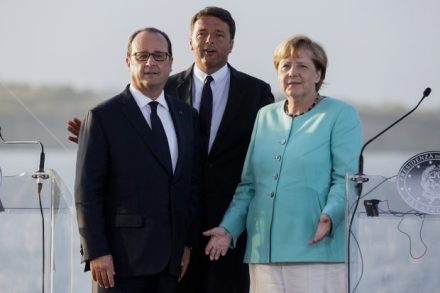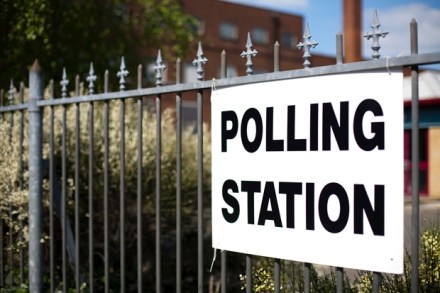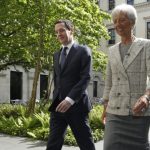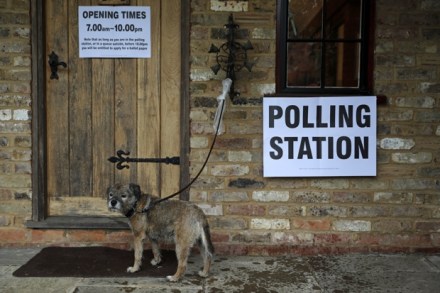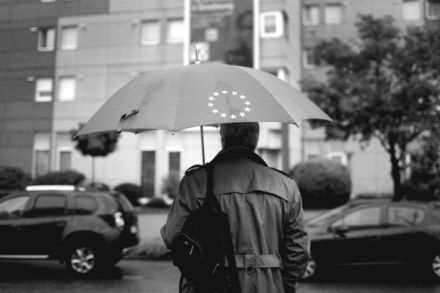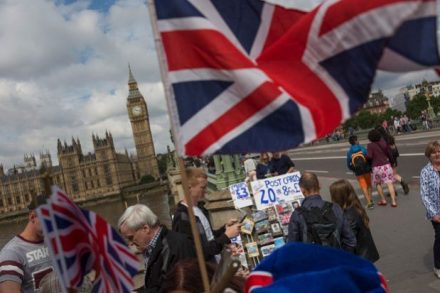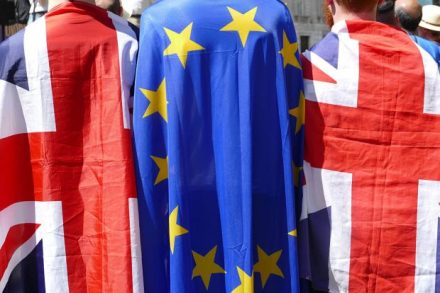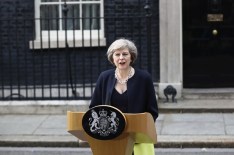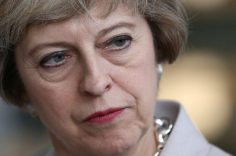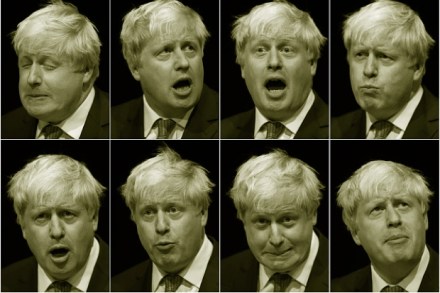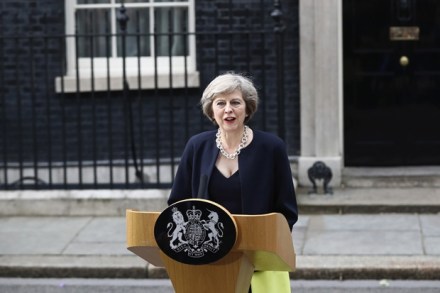Brexit won’t finish the EU, insist Merkel, Hollande and Renzi
It’s no surprise that Italy’s prime minister Matteo Renzi chose to host a press conference with Angela Merkel and Francois Hollande on an aircraft carrier; this was a piece of theatre designed to show the EU is fighting back. ‘Many thought the EU was finished after Brexit,’ said Renzi. Not so, he claimed. Instead, Britain’s decision to leave the EU was the chance to ‘write a future chapter’ and ‘relaunch the powerful ideas of unity and peace, freedom and dreams’, the Italian PM insisted. All very well, you might think, but what does that mean? Defending the continent against the threat of Islamic terrorism was a key topic. Angela Merkel
